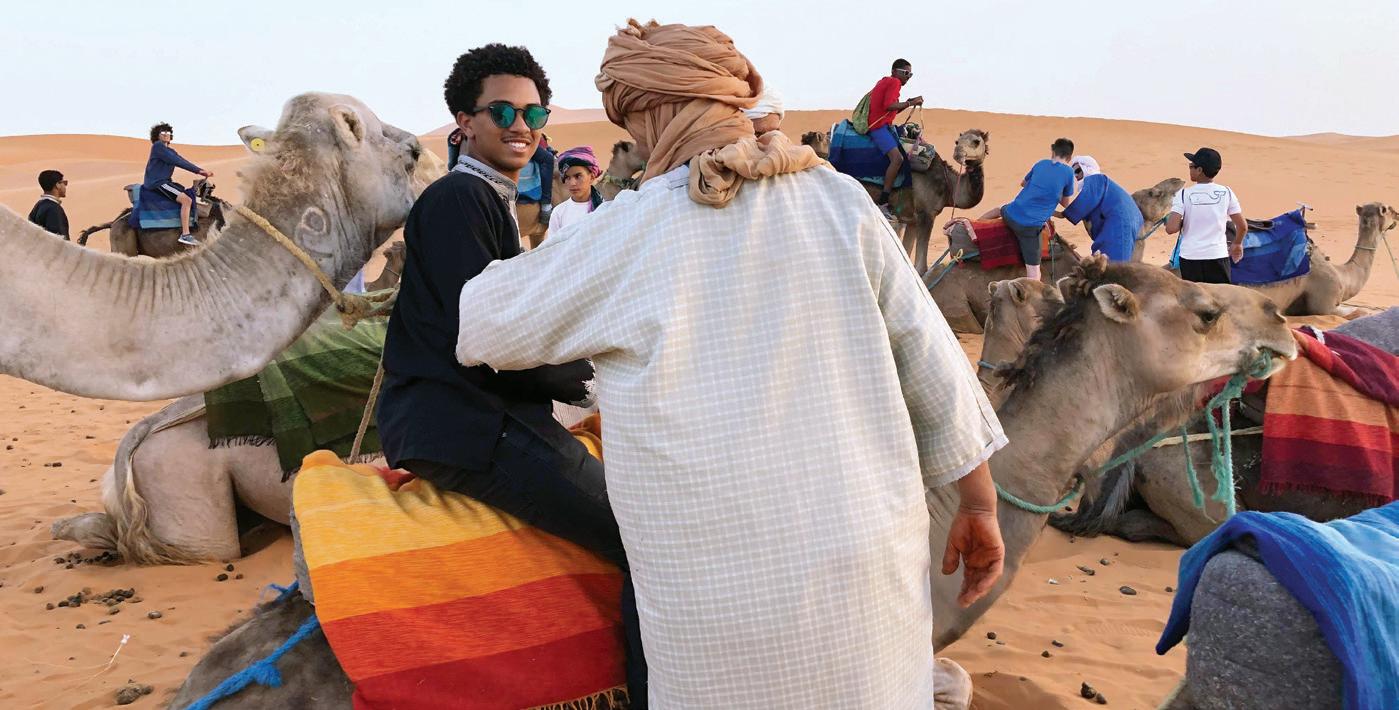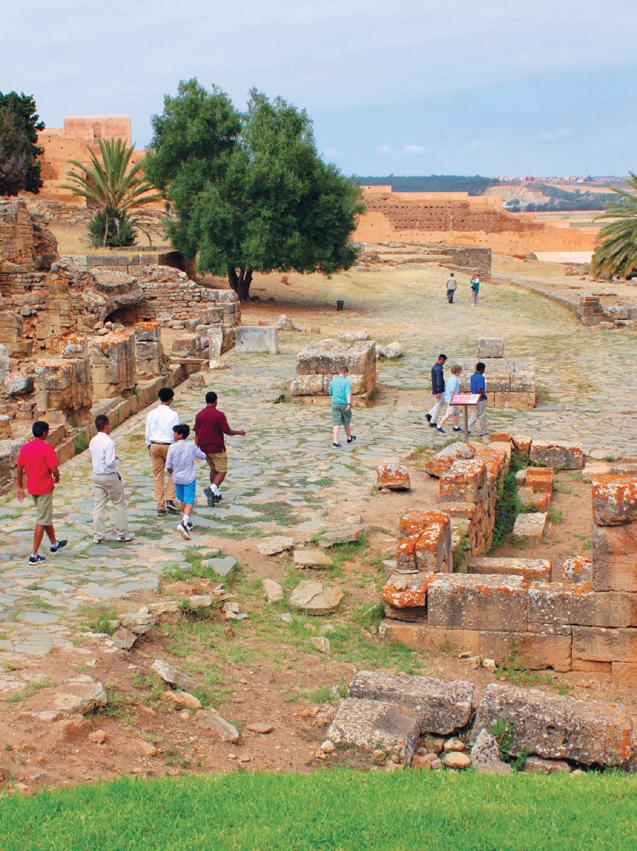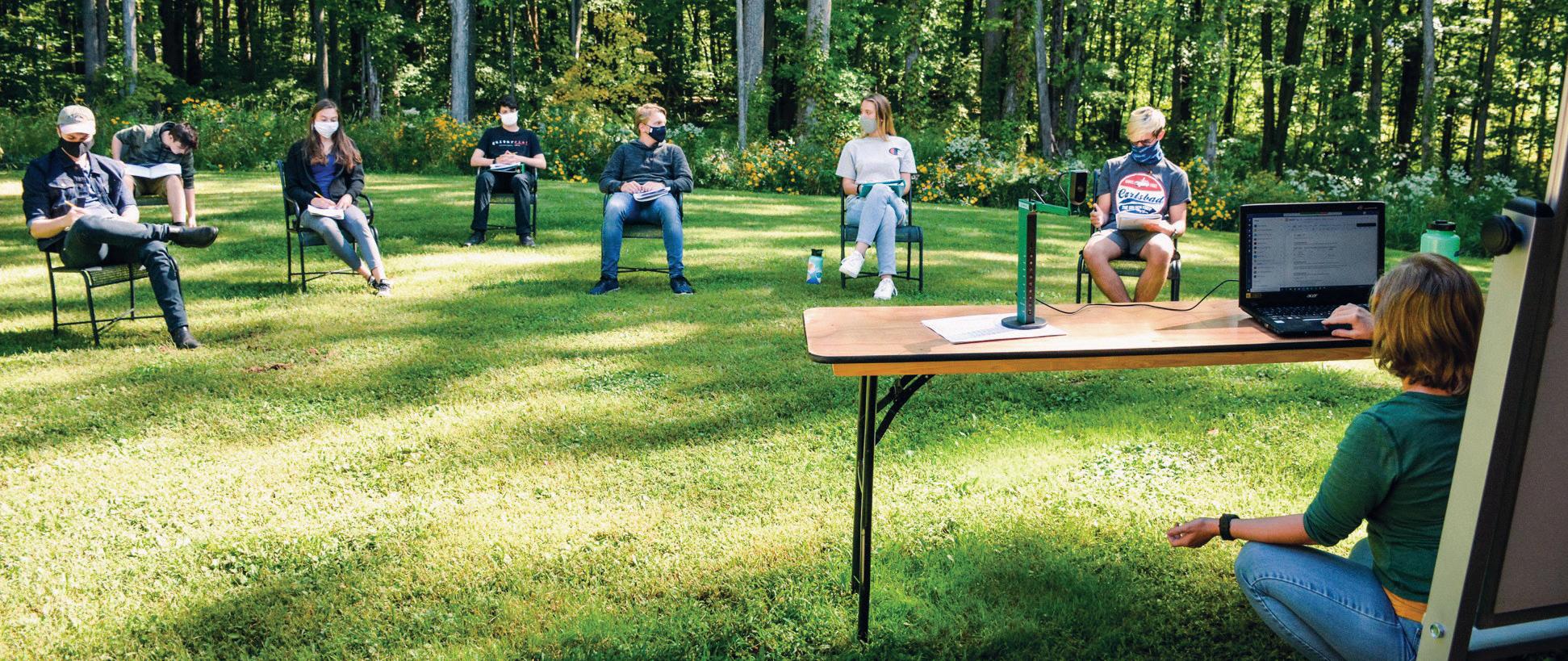
5 minute read
THINKING OUTSIDE THE SCREEN
Hershey Montessori School is a birth to 12th-grade independent school. Its curriculum is designed to help children master skills at different ages. Its programs are composed of multi-age classrooms that span three years and correspond to development levels. Experiential learning is central to its educational philosophy.
Schools maintain focus on global education, experiential learning during a pandemic
Advertisement
By VINCE GUERRIERI
Crain’s Content Studio — Cleveland
The trend in education – particularly at private schools – is experiential learning.
Students shadow professionals in a career field they’re interested in pursuing. Many schools – public and private – have some type of community service requirement. And trips abroad allow students to not just see other countries and cultures, but live in them, if only for a short time.
“Lots of schools emphasize experiential learning as part of the added value,” says Michael Ciuni, director of fellowships in global citizenship at Hathaway Brown, a private girls school in Shaker Heights. He likens international learning to mortar, holding together the traditional building blocks of learning.
But the onset of COVID-19 left faculty and administrators at many schools unable to get students out from behind a screen, much less out of the classroom, and that posed some challenges, not just in offering global education opportunities.
Gov. Mike DeWine’s order effectively ending in person school for the 2019-20 school year in March ended up officially canceling a lot of scheduled summer field trips.
Bridgette Nadzam-Kasubick, world geography teacher, social studies chair and director of global citizenship at University School, an all-boys school in Hunting Valley and Shaker Heights, said that five trips were planned last summer, to Costa Rica, China, India, Quebec and a Lake Erie sail trip. Each served different purposes, from cultural immersion to foreign language exposure. “At first, we all thought, ‘well, we’ll have to postpone,’” she says. “Our crystal ball wasn’t that clear.
“All ended up getting canceled. It was disappointing, but it also gave us an opportunity in a crisis to look at education.”
Even as students returned to school in the fall of 2020, things weren’t quite what they were before.
“We tried to maintain as close to what we had done before, within reason,” says Scott Looney, head of Hawken School. “Some things were just patently unsafe.
“We tried to maintain athletics, but we couldn’t. We have a nationally ranked speech and debate team, and they travel all over the country, but they weren’t able to do that. The national speech and debate society was very creative and tried to transfer most of their tournaments to virtual. Like a lot of things, it wasn’t quite the same.”
On a more elemental level, faculty are grappling with the idea of teaching global citizenship – with or without travel.



During a 2019 trip to deepen their understanding of global issues, 18 University School students traveled to Morocco, North Africa, gaining first-hand insight into topics such as Islam, immigration, discrimination and poverty.
Integrating the educational experience within a natural learning environment is foundational to a Montessori education.

City neighborhood, noted that the school’s accomplished football team – as well as other sports – weren’t able to travel as much for out-of-state games and tournaments. The school also limited its travel this summer to one regional trip, to West Virginia for service. to schools organizing studies in different communities within Northeast Ohio. “We were still able to have some cross-cultural experiences,” he says.
Nadzam-Kasubick also noted that the trips typically require enough advance planning that they didn’t even try to schedule anything for the summer of 2021. “It was a conscious decision,” she says. “I couldn’t ask everyone to come up with the blood, sweat and tears to design the experience. We might be vaccinated, but the places we go may not even have access to it.”
Some schools that take boarding students actually saw their enrollment decrease due to COVID-19 related travel restrictions. Paula Leigh-Doyle, head of the Hershey Montessori school, said enrollment dropped from 280 to about 250 as boarders were unable to come to the school, which has campuses in Concord and Huntsburg.
Elizabeth Edmondson, chief academic officer at Gilmour Academy, said international students couldn’t attend there either.
In both instances, the schools tried to remain connected to their international students, which provided them an opportunity to get if not a completely experiential educational opportunity, then at least the chance to connect with a foreign land on a deeper level than just reading about it.
“We’ve always had a framework for looking at education globally,” Leigh-Doyle says. “And our international boarders and alumni were really effective for us to connect globally when we couldn’t fly to those places.”
Edmondson said that Gilmour, a Holy Cross school, was able to leverage its partnerships with other schools of the same order, raising money for a partner school in Bangladesh and interacting regularly with international students, which if nothing else provided real-world examples of trying to communicate across time zones.
Since March of last year, Zoom has become everyone’s favorite – or at least, most-used – app. The virtual meeting space has brought its own issues. Just as Zoom has entered the popular lexicon, Zoom fatigue has as well. But it’s flattened geography. Students that would have been unable to travel to a program in, say, Los Angeles, can now join it virtually, getting at least some benefit from it.
The use and appetite for technology has accelerated since the pandemic started – and educators are now trying to figure out how to take the parts of it that were advantageous and refine the parts that didn’t work so well.
“Availing ourselves of Zoom actually increased the contact we had with the outdoor world,” Leigh-Doyle says. “You can’t replace actually getting out and meeting with people, but the amount of contact we had with experts outside of our school










